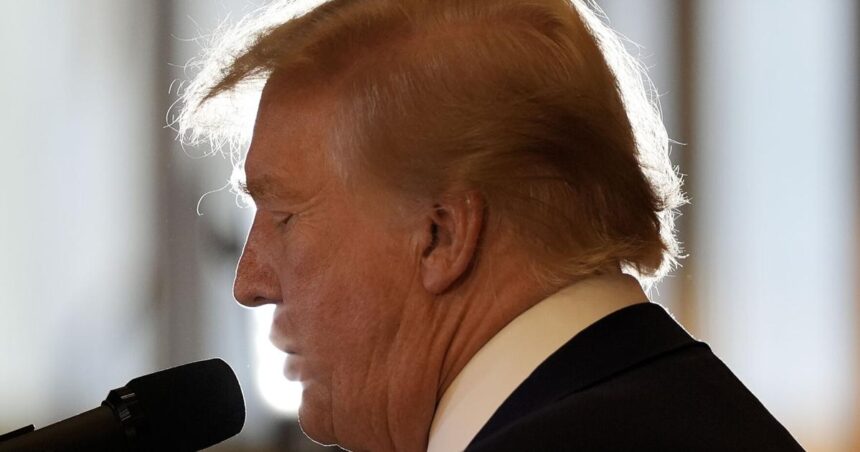NEW YORK (AP) — Will Donald Trump go to prison? Could he pardon himself? What about the election? The first criminal conviction of a former American president raises a host of legal and political questions.
Trump was convicted by a Manhattan jury Thursday of 34 felony counts related to a scheme during his 2016 presidential campaign to pay off a porn actor who said the two had sex. The presumptive Republican presidential nominee denies having sex with Stormy Daniels, has said he did nothing wrong and slammed the jury’s verdict.
Here are answers to some of the biggest questions surrounding Trump’s conviction:
People are also reading…
WHAT HAPPENS NEXT?
Trump remains free on his own recognizance. He will have to be back in the Manhattan courtroom on July 11, when he is set to be sentenced. That is just days before the Republican National Convention in Milwaukee, where GOP leaders — who remain steadfast in their support of Trump — are expected to formally make him their nominee for the November election.
Before sentencing, Trump will be interviewed for a presentence report that Judge Juan M. Merchan will use to help decide his punishment. The report is typically prepared by a probation officer, a social worker or a psychologist working for the probation department who interviews the defendant and possibly that person’s family and friends, as well as people affected by the crime. Presentence reports include a defendant’s personal history, criminal record and recommendations for sentencing. Trump has no prior convictions.
Trump is charged in three other criminal cases, but it’s possible none of them will go to trial before the election. The 2020 election interference case in Washington, for example, remains on hold while the U.S. Supreme Court weighs Trump’s claim that he is immune from prosecution for actions taken as commander in chief.
WILL HE GO TO PRISON?
It’s not clear. That will be up to the judge, who Trump has repeatedly accused of being biased against him. Manhattan District Attorney Alvin Bragg, who brought the case, refused to say Thursday whether prosecutors will seek prison time.
Each count of falsifying business records is punishable by up to four years behind bars, but it’s possible that Trump will get only fines or probation. New York court records and newspaper archives show defendants convicted of the charge are seldom sentenced to prison for that offense alone. Often, the charge is coupled with more serious felonies such as grand larceny.
And even if the judge sentences him to time behind bars, his lawyers would almost certainly push the judge to allow the former president to remain free until he exhausts his appeals.
Trump faces the threat of more serious prison time in the three other cases. For example, the most serious charges in Trump’s Washington and Georgia election interference cases carry maximum 20-year sentences.
CAN HE STILL RUN FOR PRESIDENT?
Yes. There’s nothing barring Trump from continuing his bid to reclaim the White House or from becoming president. There are only three qualifications for president spelled out in the Constitution: Candidates must be at least 35 years old, be natural born citizens and must have lived in the U.S. for at least 14 years. There are no restrictions on his travel at this point either, so he can continue to campaign normally.
CAN HE APPEAL?
Trump attorney Todd Blanche said on the “Today” show Friday: “We’re going to appeal, and we’re going to win on appeal.” Trump’s lawyers laid the groundwork throughout the trial to challenge the verdict on multiple issues.
Blanche suggested they will challenge the judge’s decision not to recuse himself. Trump has repeatedly argued Merchan should not have presided over the case, citing cash he’s given to Democrats and the fact that his daughter is a party consultant. Merchan has acknowledged making several small donations to Democratic causes during the 2020 campaign, including $15 to Trump’s Democratic rival, Joe Biden, but rejected Trump’s claims he cannot fairly preside over the case.
Trump’s lawyers may also challenge rulings from the judge they claim unfairly hampered his defense, including limiting the testimony of an expert witness they wanted to put on the stand.
COULD HE PARDON HIMSELF?
No. It’s a state conviction, so Trump would not be able to pardon himself if he were to become president again. Presidential pardons apply only to federal crimes. And it’s a legally untested question as to whether Trump would even have the power to pardon himself if he’s convicted in the federal cases. No president has attempted to do so while in office because no president before Trump had ever been charged or convicted.
CAN HE VOTE IN NOVEMBER?
He can, as long as he is not in prison. Trump’s home state of Florida defers to other states’ disenfranchisement rules for residents convicted of out-of-state felonies. And New York law removes the right to vote for people convicted of felonies only while they’re incarcerated. Once they’re out of prison, their rights are automatically restored, even if they’re on parole, per a 2021 law passed by the state’s Democratic legislature.
WILL IT HURT HIM POLITICALLY?
Trump said Thursday that “the real verdict is going to be Nov. 5 by the people,” referring to Election Day.
It’s unclear to what extent his guilty verdict will impact his bid to unseat Biden. The election is expected to be incredibly tight, and it’s not clear how voters who are on the fence — especially independents and other key voting blocs — will feel when they go to the polls.
Republican lawmakers who have been divided in the past over their support for Trump lined up behind him in the wake of the conviction, slamming the judge and prosecutors.
Trump’s campaign hopes his supporters will be similarly galvanized by the case, which Trump has cast as an effort to tank his White House bid. His campaign immediately began fundraising off the conviction with messages such as: “I WAS JUST CONVICTED IN A RIGGED TRIAL!” Another message to supporters read: “If they can do this to me, they can do this to anyone.”
Trump’s campaign said Friday morning that it raised a record $34.8 million in small online contributions off his conviction — nearly double its previous largest haul.
Richer reported from Washington. Associated Press journalists Jill Colvin and Luke Sheridan in New York contributed to this report.
Copyright 2024 The Associated Press. All rights reserved. This material may not be published, broadcast, rewritten or redistributed without permission.





